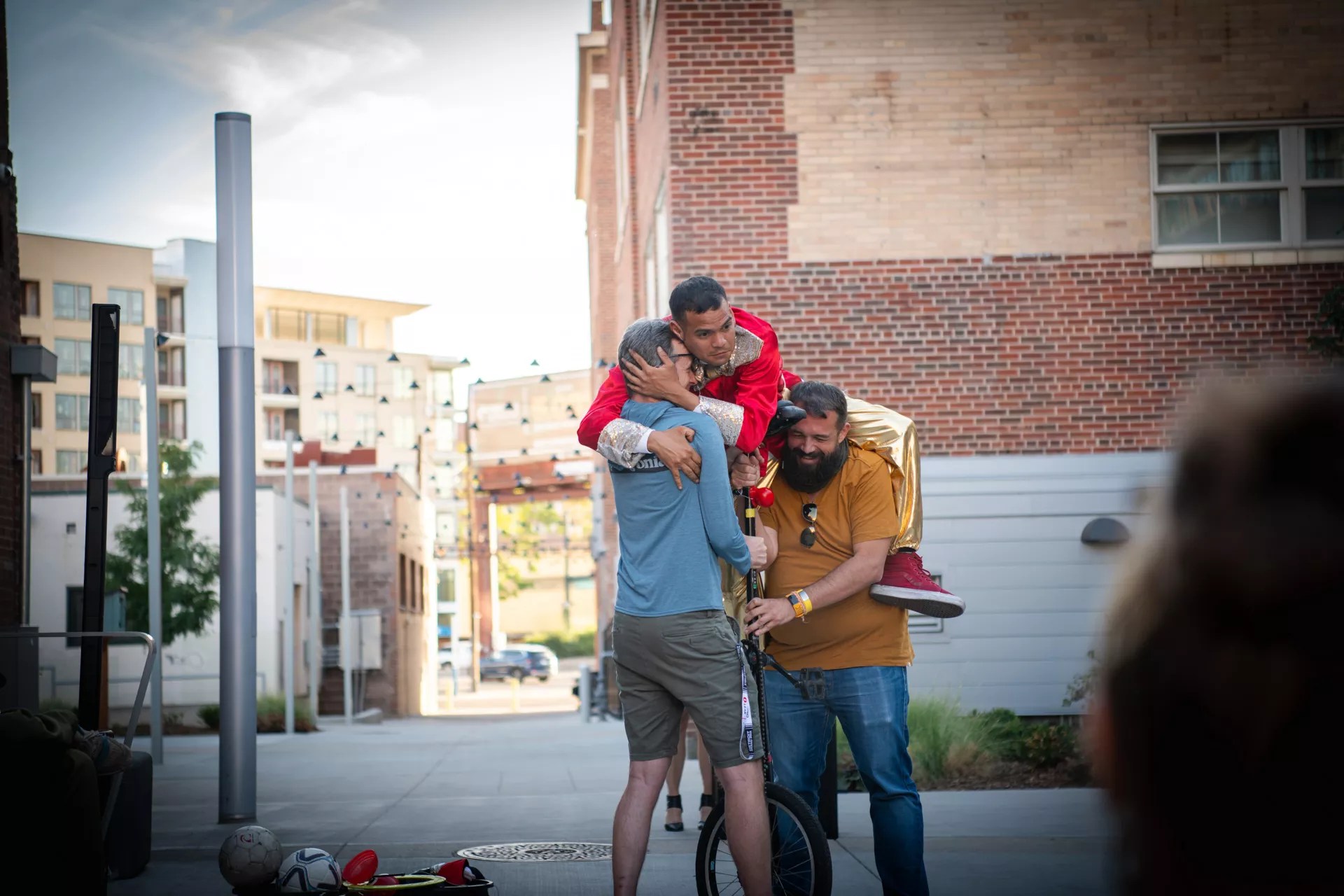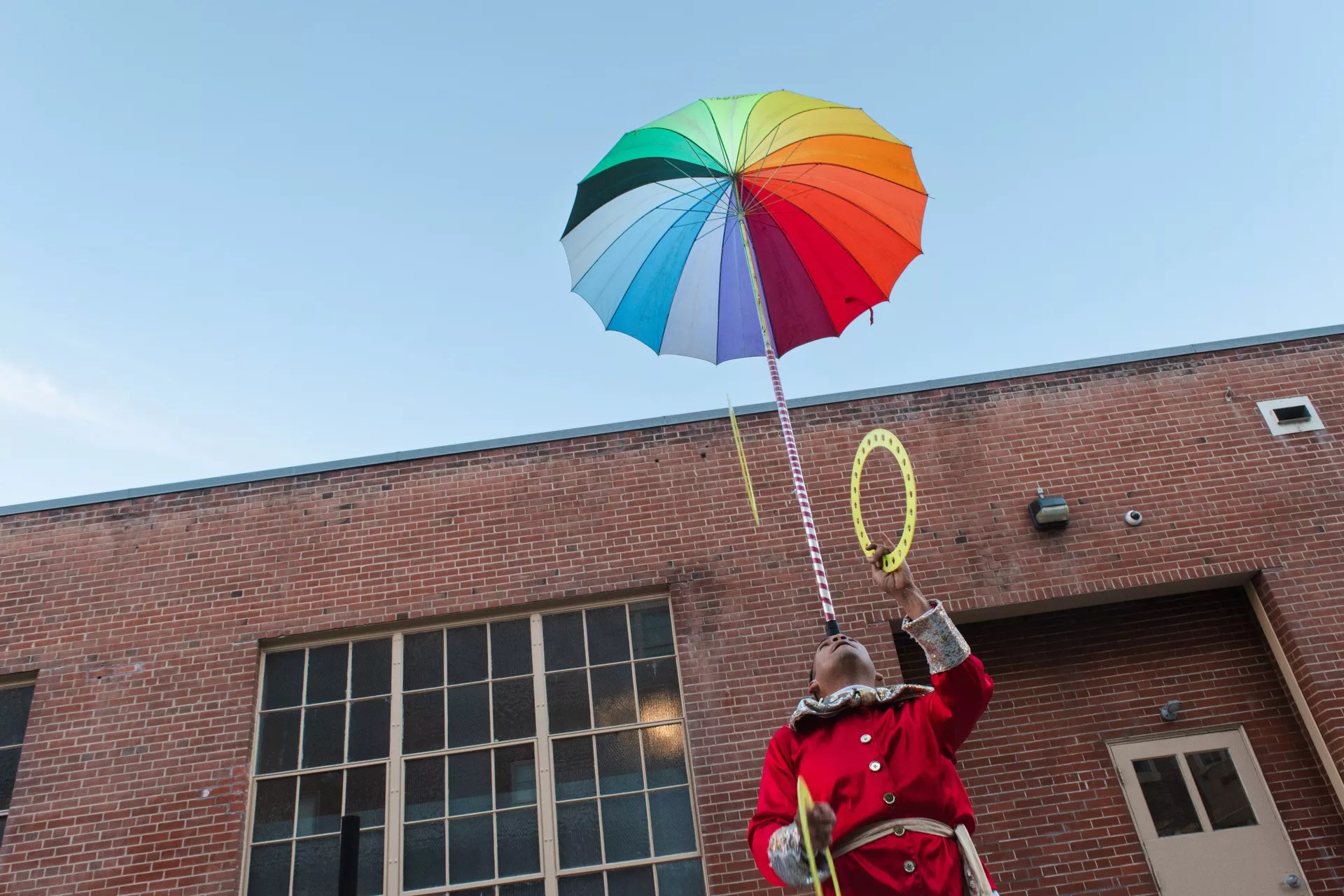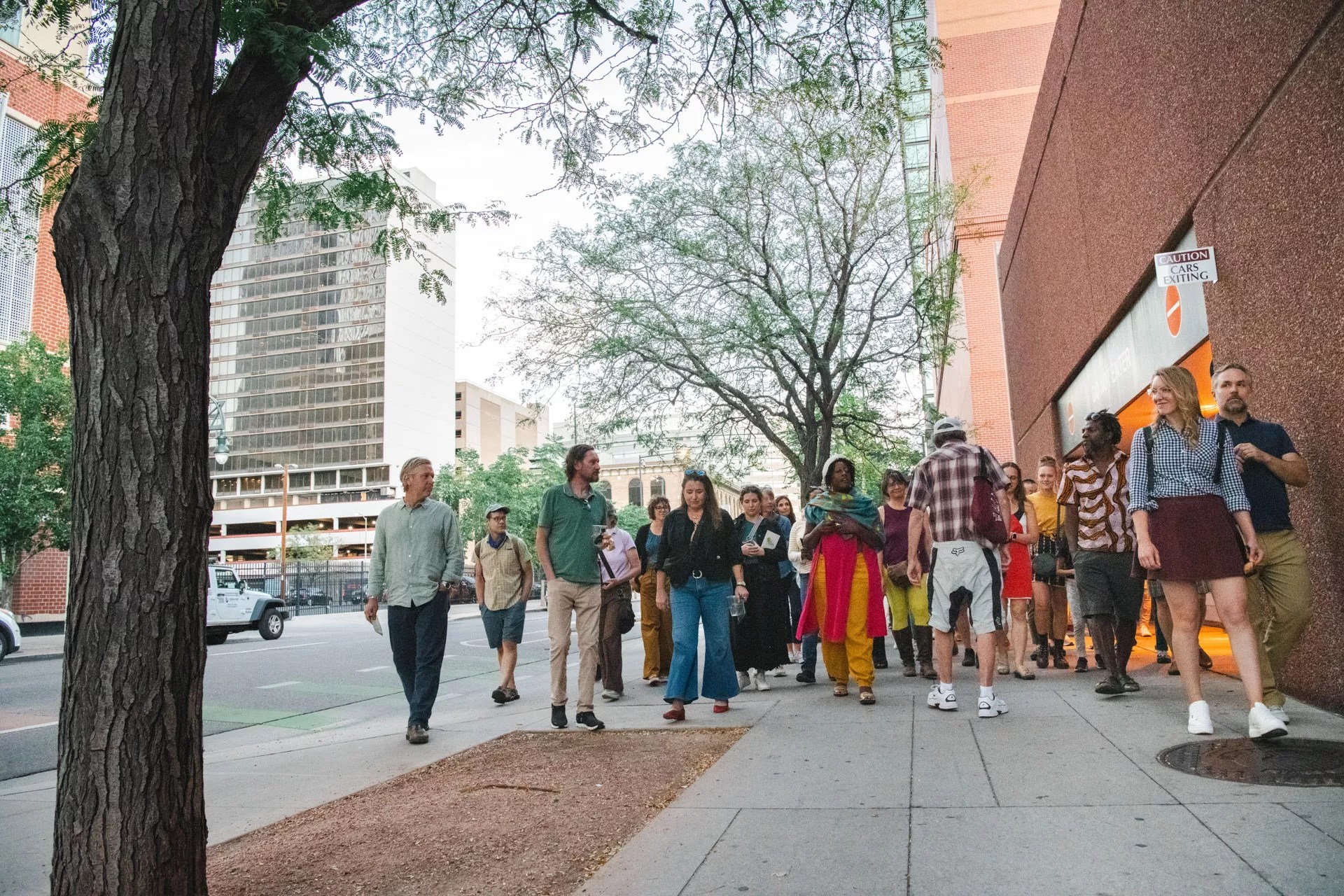
Roxann Blue

Audio By Carbonatix
Ever since Evan Weissman founded Warm Cookies of the Revolution over twelve years ago, the Warm Cookies team has been endlessly creative in their endeavors to find new ways to educate communities about civic action. Warm Cookies frames its mission around promoting civic health through entertaining events in the hopes that residents will feel empowered by getting the knowledge and community they need to start “voting every day.”
Voting every day can look like participating in city council meetings and other civic spaces, in addition to building a deeper community with other local residents. Having the support of countless local artists and residents has provided Warm Cookies with a lot of innovative ways to accomplish those goals over the years.
In the past, Warm Cookies’ projects have included interactive events that allow attendees to experiment with the city’s infrastructure with LEGOs, a massive art installation that teaches visitors about participatory budgeting, virtual gift baskets of local artists’ work to be bought during the COVID-19 pandemic and even dance parties to provide people with outlets to express themselves during election day. “We’re very connected with different parts of the community, so we’re this weird, loose coalition of people who represent all sorts of different subcultures,” Weissman says in regard to the wide variety of the club’s projects. “New things from each of those communities just kind of bubble up for us.”
This collaboration of residents and artists has been particularly prominent with The People’s Atlas Of The Future, Warm Cookies’ current event series. “We were thinking about maps, and we were thinking about how people get around in their community and why it can feel so different [for each person],” Weissman says. “We were talking about how getting around in a wheelchair is different from getting around in a car or on a bus, and why that’s the way it is, and the theme extended out from there.”
The first Atlas event last fall, based in downtown Denver to map out the history of the KKK’s presence in the city and provide an atlas for local botanical growth, among other showcases, proved to be a success, and the club set its sights on another timely topic: education.
The second Atlas of the Future event on Sunday, March 2 in Westwood will feature performances from D3 Arts, Santiago and Lala Jaramillo, all of whom will be educating the audience about their art forms, including a traditional Aztec dance, photography and poetry. All of the artists are locally based in Westwood.

Local artists provide some form of entertainment during every Warm Cookies project, including the most recent Atlas of The Future event last fall.
Roxann Blue
The event will also feature discussions of the seven schools that are being closed down by Denver Public Schools this year, including Castro Elementary School in Westwood. “That [school’s closure] obviously changes the map,” Weissman says. “If everyone on your street would normally walk their kids to school, what’s that going to do next year when everyone’s going to different schools, and how does that change everyone’s days? Who made this decision, and how much do people feel like they were a part of this process?”
Educational activists will attend the event to challenge audience members to answer these questions, many of whom were connected to the event by Denver parent Mandy Nunes Hennessey. Nunes Hennessey has been an active voice in educational groups and an advocate for accessible public education for many years now. “What I love about Warm Cookies is that they take these really complex civic issues like education and distill it down in a way that’s fun and engaging,” Nunes Hennessey says. “I don’t think that there are a lot of organizations that are doing that.”
Nunes Hennessey is specifically hoping that the engaging program will encourage more Denver residents, especially parents, to participate more actively in discussions surrounding public education. “If you think of education as a public good, then you should want to fight for your public schools,” Nunes Hennessey says. ” I think most people think of activism as protests and boycotts, but I’d say that one of the most impactful forms of activism is community organizing. That doesn’t even have to mean organizing hundreds of parents; one of the simplest forms of activism is just having a conversation with your neighbor.”
Organizing and engaging with neighbors about local issues is an essential part of any healthy community, something that Warm Cookies knows all too well. While the club spent many years focused exclusively on Denver, the team has put a lot of time into new projects promoting civic engagement in suburbs and rural towns in the last few years. “We’ve been working in all sorts of different places, and a lot of what we’re doing is working with people who historically have not been civic decision-makers,” Weissman says. “You have a lot more people who fundamentally disagree [in those communities], but it’s the same answer: If you come in exploring the town’s history, and celebrating the artists and having some good food, then you might have some conversations and find that you care about similar stuff.”

The People’s Atlas of The Future event series invites attendees to walk through their communities together to learn more about the rich history and culture of each neighborhood.
Roxann Blue
Someone who understands the importance of holding space for shared community is Jane Kirema, the leader of Warm Cookies’ Suburb Futures programs, which is based in Aurora and mostly led by refugees. Suburb Futures is distinct in that it has taken the larger public events of Denver and shrunk them down into more personal events known as Civic House Parties. “We researched different communities and asked people how they felt comfortable engaging civically, and most people said that they felt most comfortable in their homes, so we made Civic House Parties,” Kirema explains.
The format of Civic House Parties is a bit different, but the goal is the same: Find entertaining ways to bring artists and residents together to learn about their local community and promote civic health. “We sit down with a resident and ask them what issues they would like to talk about, and then we create a party around that theme,” Kirema says. “We host each party, but in the process, we also engage in conversations about civics. It’s about the theme, but it’s also how are we going to know our rights in Aurora, how are we going to support Aurora, who are our leaders and so on.”
While Civic House Parties are largely private events consisting of groups of ten or more people, any Aurora resident can sign up for their own house party with the theme of their choice to engage with their community and learn more about civic health.
Another program, Future Towns, has brought its own spin on the format to Colorado towns such as Leadville, Alamosa and Fort Garland. But the scope of Warm Cookies’ goal doesn’t stop there; Weissman hopes that civic health clubs will start up all over the country someday. “We’re trying to figure out ways that we can have a horizontal network where we can share resources,” Weissman says regarding civic leaders in other communities. “We’re seeing that people have a real thirst for this kind of work right now, and luckily we’re getting a lot more support for this sort of thing across the country.”
At a time when the Trump Administration has fully embraced policies promoting censorship, misinformation and the dissolution of many public-facing federal departments, one might think that civic action and community building would be much more difficult, but Weissman is confident that local civic discussions will continue to be a positive way for communities to stay empowered and active, no matter what comes next. “When you get people together to actually meet face-to-face and do something fun together, most people want really similar things,” he says. “If you get into the red team/blue team, ‘Trump’s a fascist’ kind of stuff, those are just conversation enders. I actually have more hope for political discourse by specifically doing this kind of work than I do with most anything else.”
“It’s just so overwhelming politically right now, and we all feel really paralyzed,” Nunes Hennessey adds. “But I think it can make anyone feel better to know that they’re contributing something to their community.”
Westwood’s Atlas Of The Future event on education will be hosted at D3 Arts at 1 p.m. this Sunday, March 2. The event will feature artists local to Westwood, a group walk to Castro Elementary School and much more. Learn more about the event, RSVP and subscribe to the club newsletter on the Warm Cookies website. You can learn more about signing up for a Civic House Party in Aurora here.